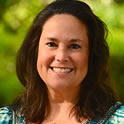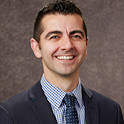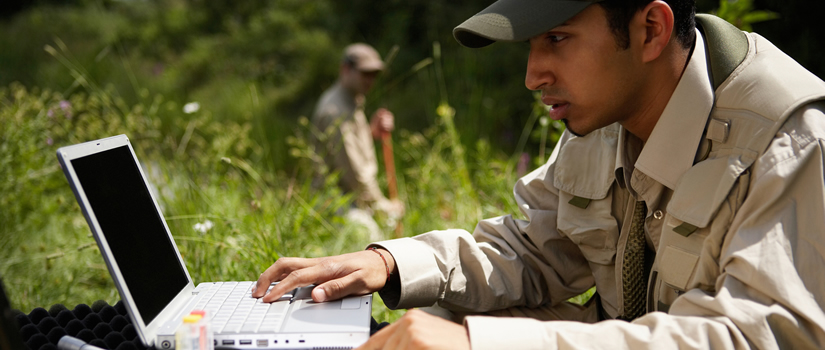Darin Freeburg, Assistant Professor, School of Library and Information Science
(SLIS 41O, SUS 726: Knowledge Management for Library & Information Professionals)
Knowledge Management for Library & Information Professionals is an introduction to
the theory and practice of Knowledge Management (KM) in organizations. The proposed
project will enhance student's understanding of how knowledge differs from information
and data, and what its role is in an organization. The project will also help students
identify the appropriateness and efficacy of KM as well as its limitations-in different
organizations, in ways that case studies simply cannot replicate. Rather than rely
on existing information about an organization, students will go out and interview
organizational leaders with specific KM-related questions. Students will analyze this
data about processes and infrastructure, relying on classroom readings, lectures,
and discussions to identify areas where KM is being practiced effectively, as well
as opportunities to increase KM. Taking the course will give students a career advantage
once they graduate, as they will have experience with integrating KM into organizational
practices.
|
Freeburg
|
Patrick Hickey, Clinical Associate Professor, College of Nursing
(SCHC 392: Perioperative Environment: Basic Survival Skills)
SCHC 392 Perioperative Environment: Basic Survival Skills is a one-credit hour elective
exclusively for Capstone Scholars or Honors College students. The course was designed
to meet a need for students that were interested in the surgical setting of healthcare.
The course outcomes of describing the historical evolution of surgery, the roles of
the surgical team, and the standards that maintain quality of care are not hard to
address in lecture format. However, instructional education on patient and staff safety
risks, infection control, aseptic and sterile technique, patient positioning, and
proper utilization of surgical equipment would be better delivered in a "hands-on"
integrative learning format. This project will develop an integrative learning opportunity
that effectively reiterates/demonstrates lessons learned in the classroom. Students
will participate in an educationally purposeful beyond-the-classroom experience which
consists of physically going to an operating room environment. The addition of integrative
learning processes will include also include sharing group PowerPoints in order to
expose more PreMed/PA students, and presenting surgical case at Discovery Day.
|
 Hickey Hickey
|
R. Mac Jones, Assistant Professor of English, Extended University
(PALM 493, PALM 494, UNIV 401: E-Portfolios for BLS and BOL Degree Programs- Palmetto
College)
Mac Jones' project will develop a plan for the program-wide use of e-portfolios in
the core courses for the Bachelor of Organizational Leadership (BOL) and Bachelor
of Liberal Studies (BLS) degrees offered by Palmetto College. BLS and BOL are interdisciplinary
degrees, and the aim of the e-portfolios will be to provide students with a transportable
repository of materials and complementary assignments to aid them in articulating
their unique academic experiences to potential employers and graduate programs. The
e-portfolios will challenge students to produce a narrative of their academic career
and highlight their capacity for dynamic critical thinking across disciplines. Students
will leave the degree program with this narrative and artifacts, in the form of assignments
collected from the core courses that are reflective of this capacity for independent,
interdisciplinary thought.
|
|
Zhenlong Li, Assistant Professor, Department of Geography
(GEOG 554: Spatial Programming)
GEOG 554 Spatial Programming aims to help students achieve deeper understanding of
geographic information systems (GIS) concepts and equip them with fundamental spatial
programming skills to solve practical spatial problems. Feedback from students identified
two issues. First, the students have a wide variety of backgrounds and interests,
and the reasons for taking the course vary greatly. Secondly, most students lack the
ability to analyze the spatial problems to solve them programmatically. Because of
these issues, Li felt the need to improve the instructional approach by redesigning
the instructional strategies and revising the course materials/presentation style.
This project will incorporate integrative learning components into the instructional
approach to help students improve their problem solving skills using spatial programming.
A problem-oriented instructional strategy will be added to the course, including learning
through reflection activities and connecting coursework to career goals.
|
 Zhenlong Li Zhenlong Li
|
Haylee Uecker Mercado, Assistant Professor, College of Hospitality, Retail and Sport
Management, Sport and Entertainment Management
(SPTE 590: Sustainable Sport and Entertainment Facility Management)
In the new Sustainable Sport and Entertainment Facility Management course students learn how sustainable management practices affect all functional
areas of sport and entertainment facility operations. Course projects will expand
students’ understanding of environmental sustainability in the sport and entertainment
sector and develop students' management skills, analytical tools, and program development.
General Managers from various facilities will visit the class early in the semester
for several round-table discussions about the sustainability efforts of their building.
Students will then be assigned to a specific facility as the basis of a class project.
Specifically the students will do a sustainability audit of their facility and will
evaluate at least four aspects of a sport organization specific to sustainability.
This immersive method of gaining experience, knowledge and skills provides a positive
outcome and a greater understanding of the characteristics of effective sustainable
management creating an environment in which students graduate with industry specific
skills.
|
 Haylee Uecker Mercado Haylee Uecker Mercado
|
Damien Picarello, Assistant Professor, Political Science and GLD Advisor USC Sumter
(UNIV 401: Graduation with Leadership Distinction)
Graduation with Leadership distinction (GLD) has a significant and growing role on
the USC Sumter campus. Through the process of offering UNIV 401 for the first time,
both the staff instructor and faculty advisor became aware of the limited availability
of beyond the classroom activities on the USC Sumter campus. Picarello’s project will
enhance and expand GLD on the Sumter campus. Making a wider variety of beyond the
classroom activities available to USC Sumter students will enhance the experiences
of current GLD students, provide more points of entry for potential GLD candidates
into the GLD process, and enable far more USC Sumter students - whether or not they
ultimately pursue GLD - to connect their learning within the classroom to a range
of activities and experiences beyond the classroom.
|
 Damien Picarello Damien Picarello
|
Charles Pierce, Associate Professor, Department of Civil and Environmental Engineering
(ECIV 101: Introduction to Civil Engineering, ECIV 201: Computational Methods for
Civil Engineering)
Pierce’s proposal aims to develop and implement the foundation for a programmatic
Integrative Learning Plan (ILP) within the Department of Civil & Environmental Engineering
(CEE) focusing primarily on the first two years of the curriculum. The goal of this
proposal is to create a structured curricular approach for raising student awareness
about purposeful involvement and integrative learning. The two proposed ILP courses
are distinctly different from one another in terms of instructional content and delivery,
making them good candidates for introducing integrative learning from two different
perspectives. The plan will elevate and, hopefully, institutionalize student awareness
of the GLD program. However, even if students choose not to pursue GLD or do not meet
the GPA requirements, the ILP will expose all students to the value of pursuing meaningful
extracurricular activities and reflecting on how these experiences are connected to
their academic learning.
|
 Charles Pierce Charles Pierce
|
Susan Rathbun-Grubb, Assistant Professor, School of Library and Information Science
(SLIS 735: Metadata, SUS 732: Indexing and Abstracting)
SUS735-Metadata and SUS 732-lndexing and Abstracting require students to plan and design digital collections and to create and use taxonomies
for information. While the courses assess the students' ability to plan for a system,
the instructor was unable to adequately demonstrate, teach, or assess skills related
to implementation and testing of the planned systems. A 16-month subscription to the
Microsoft SharePoint content management system will allow the instructor to bridge
the theory-practice divide by enabling students to practice implementation skills
and to evaluate usability. Moreover, the system will enable students to make the vital
connection between metadata design "best practices" and the demonstrable evidence
of a real system that can be utilized and tested. The addition of a reflective portion
to the assignments will also give students the opportunity to assess the effectiveness
of their design decisions in a system they are very likely to encounter when they
join the workforce as a professional.
|
 Susan Rathbun-Grubb Susan Rathbun-Grubb
|
Armen Shaomian, Assistant Professor, Department of Sport and Entertainment Management
(SPTE 590: The Business of Broadway)
This entirely new course designed to explore and understand the multibillion-dollar
Broadway industry will focus on knowledge and skills that will assist students in
promoting positive change in professional settings. As an integral part of the live-entertainment
industry, this course will fill a large gap in the entertainment management portion
of the Sport and Entertainment Management degree, not only by increasing students'
knowledge and awareness of the business and management aspects of Broadway, but also
channeling them into entertainment management careers through the benefit of their
high-level of management expertise accrued in specific relation to this course. Shaomian
intends for this course to be an exciting and new course option, using integrative
learning methods for management students engaged in the USC Connect Graduation with
Leadership Distinction (GLD) program. Students will be provided with unique insights
into the creative and artistic world that translate across all managerial disciplines
by including several peer leadership opportunities throughout the course.
|
 Armen Shaomian Armen Shaomian
|
David Weintraub, Senior Instructor, School of Journalism and Mass Communications
(JOUR 499-001: Freelancing for Creative Professionals)
Weintraub’s project will retool the existing special-topics course, Freelancing for
Creative Professionals, into an elective course with a permanent place in the curriculum.
The course examines the theory and practice of entrepreneurship as they apply to creative
professionals. Students learn the skills and techniques necessary for starting and
operating their own successful freelance business. An important component of the course
is integrative learning, in this case exposing students to professionals working in
creative fields through interviews with local entrepreneurs; sales pitches to actual
clients; business proposals to clients or investors; guest speakers in the classroom,
field visits to business run by local entrepreneurs, and Skype interviews with leading
experts. The goal of this project is to retool both the course content and the instructional
methods to provide students with an enriched integrative-learning experience.
|
 David Weintraub David Weintraub
|

 Hickey
Hickey Zhenlong Li
Zhenlong Li Haylee Uecker Mercado
Haylee Uecker Mercado Damien Picarello
Damien Picarello Charles Pierce
Charles Pierce Susan Rathbun-Grubb
Susan Rathbun-Grubb Armen Shaomian
Armen Shaomian David Weintraub
David Weintraub